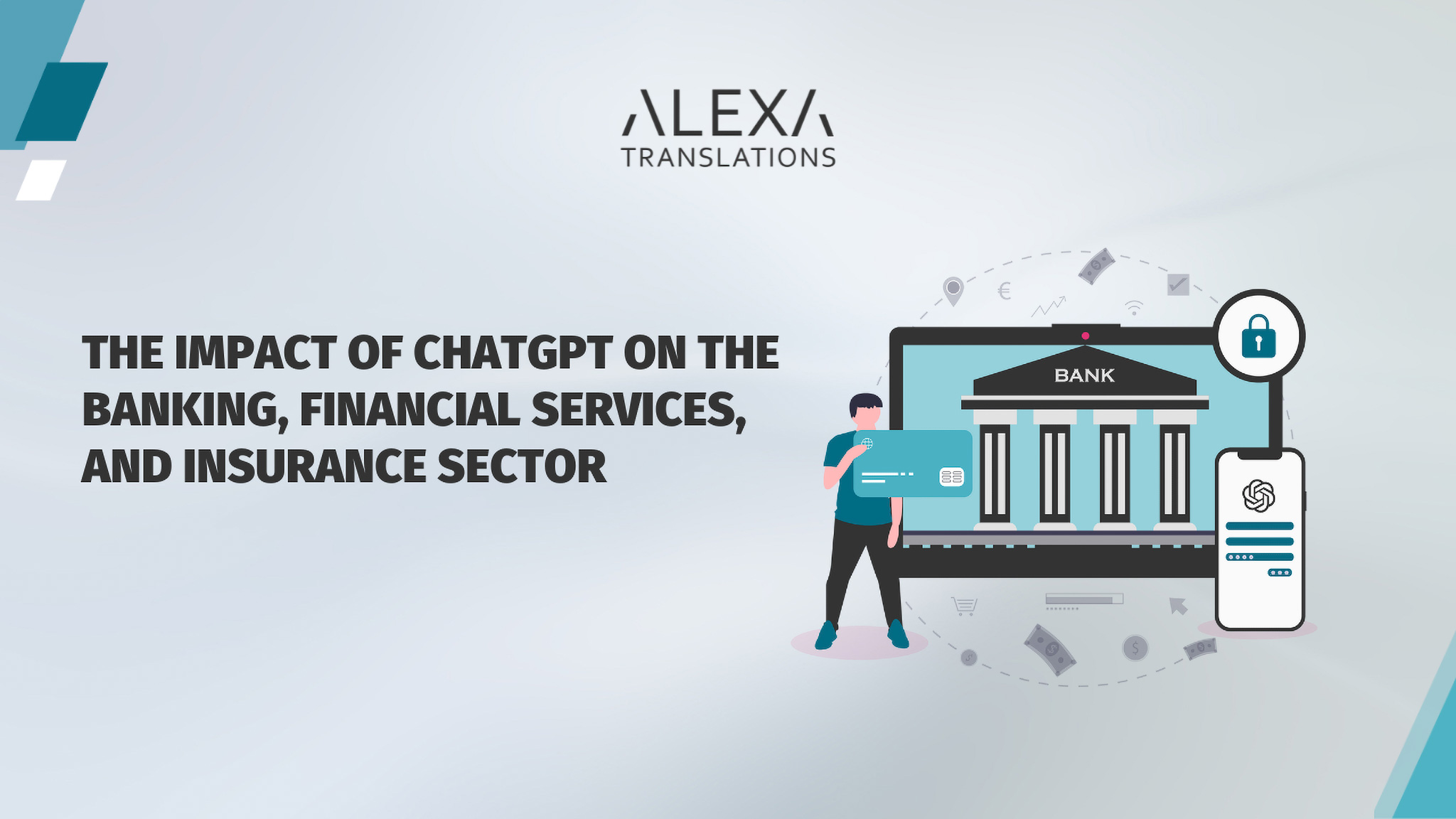The Impact of ChatGPT on the Banking, Finance and Insurance Sector


The rapid advancements in artificial intelligence (A.I.) and machine learning (ML) have fundamentally changed the banking, finance, and insurance (BFSI) sector, among others. One such technology that has been making waves is ChatGPT.
ChatGPT, an A.I.-based language model, has dominated the news cycle in recent weeks. Questions have been raised about everything from the morality of using the tool to how it will fundamentally change the internet as we know it. The use of ChatGPT has even led to a defamation lawsuit in Australia against the creators, OpenAI.
Whatever you may have heard about the platform, the technology is here to stay.
In this article, we discuss the transformative impact of ChatGPT on the BFSI sector and how it has enhanced customer experience, streamlined operations, and improved regulatory compliance.
ChatGPT enables the BFSI sector to deliver a superior customer experience by providing quick and accurate responses to queries, facilitating seamless onboarding, and even offering personalized financial advice.
These advancements are due toChatGPT’s natural language processing capabilities. Simply, the platform can understand and respond to customer queries using more natural language that better replicates a human, leading to a better customer experience.
Financial institutions have integrated ChatGPT into their customer support channels, such as chatbots and virtual assistants, to address customer issues in real-time and reduce wait times.
This increases customer satisfaction and frees up human resources to focus on more complex tasks.
The GPT-4 learning model is capable of analyzing customer data, such as:
This is invaluable for banks and financial instutions, allowing them to provide personalized investment and insurance recommendations, ultimately helping customers make informed decisions.
ChatGPT has been instrumental in automating various back-end processes in the BFSI sector.
By leveraging its natural language understanding, ChatGPT can review and extract relevant information from complex documents, such as loan applications, insurance policies, and financial statements. The speed and accuracy of ChatGPT serves to streamline the decision-making process for many organizations using the tool.
ChatGPT can analyze large volumes of transaction data to identify suspicious patterns and flag potential fraudulent activities. The result is enhanced security measures that minimize financial losses.
Further, ChatGPT’s ability to process and analyze vast amounts of data quickly and efficiently outpaces most, if not all, manual efforts, making it a valuable tool for fraud prevention.
ChatGPT can be leveraged to evaluate the creditworthiness of loan applicants by analyzing their financial history, employment status, and other relevant factors.
This helps financial institutions make more accurate lending decisions, reducing the risk of default while offering competitive loan products.
Maintaining regulatory compliance is crucial for financial institutions. ChatGPT has played a significant role in simplifying the compliance process by automating various tasks, such as data analysis and reporting.
Financial institutions can leverage ChatGPT to generate regulatory reports by extracting relevant information from various data sources, thus reducing manual labor and minimizing the risk of errors. This streamlines the reporting process, making it more efficient and accurate.
ChatGPT can be utilized to create interactive and engaging training materials for employees to ensure they understand and adhere to industry regulations.
By using A.I.-generated content, financial institutions can provide up-to-date and comprehensive training, fostering a culture of compliance within the organization.
As ChatGPT continues to evolve, its potential applications in the BFSI sector expand, driving innovation and the development of new products and services.
By understanding customer needs, preferences, and financial goals, ChatGPT can help financial institutions design and offer tailored financial products, such as:
This results in better customer engagement and a competitive edge in the market.
ChatGPT can analyze social media, news articles, and other online sources to gauge public sentiment about financial products, services, or events.
ChatGPT can simulate various economic and financial scenarios, allowing institutions to assess potential risks and develop robust risk management strategies.
This improves decision-making and enables institutions to remain resilient in the face of market fluctuations and economic uncertainty.
The BFSI sector has benefited immensely from adopting ChatGPT, as it has revolutionized customer interactions, automated mundane tasks, and simplified regulatory compliance processes.
However, one area where ChatGPT lacks is quality A.I. translations. Translations are critical in the BFSI sector, and companies simply can’t rely on tools like ChatGPT.
For accurate A.I. translations that are tailored for the BFSI sector, you should consider Alexa Translations.